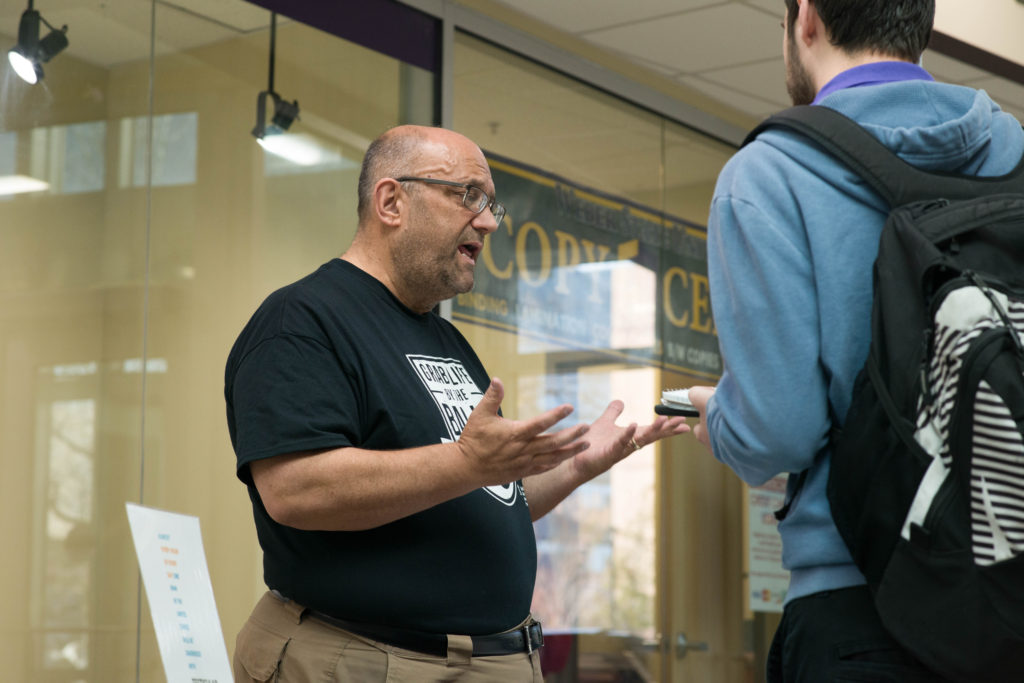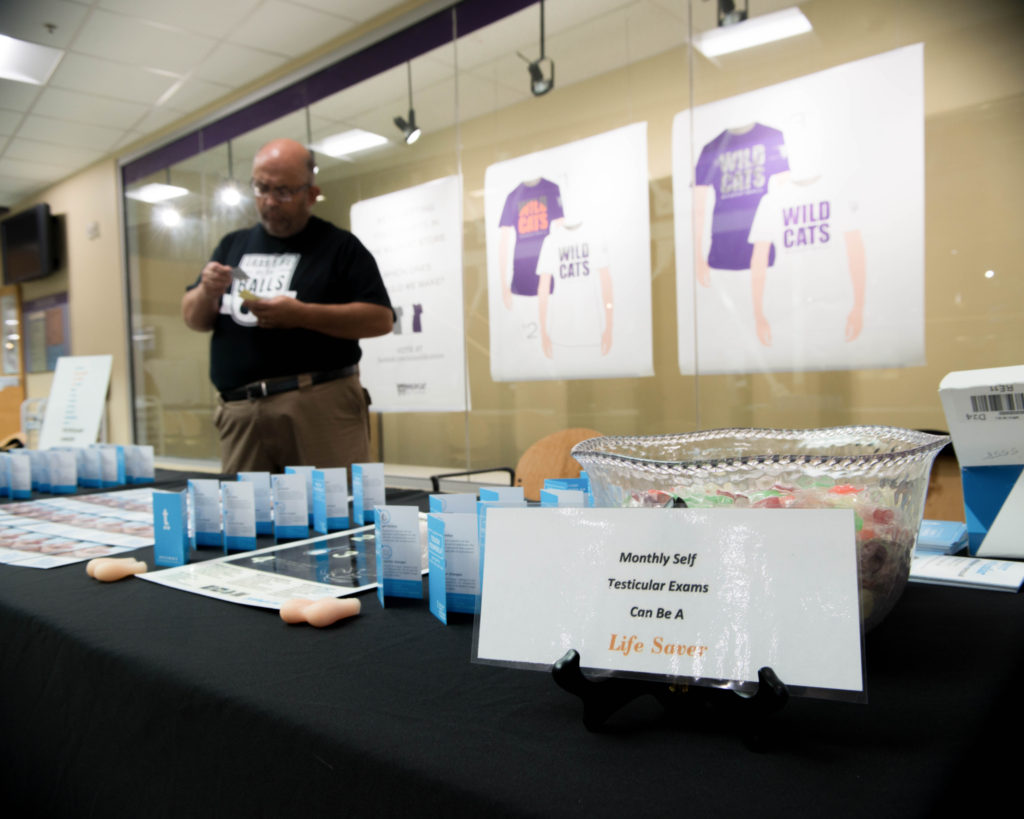
Testicular cancer is most common among men ages 15–35, and more men with testicular cancer than women with breast cancer die from the disease, according to the Testicular Cancer Awareness Foundation.
The foundation, aided by the Male Initiative Program, set up a booth in the Shepherd Union Atrium on Nov. 4, educating passersby on the dangers and detection of testicular cancer.
Russell Goodman, volunteer educator with the foundation, sported a “Grab Life by the Balls” shirt as he set up the Save Your Nuts booth. In front of him lay informational pamphlets, as well as snack bags of cashews and almonds.
At the age of 20, Goodman’s son was diagnosed with cancer after finding a lump on his testicle. He had it surgically removed 10 days later, but Goodman remembers feeling unsure of what to do once he found out.
‘We didn’t have a clue. I knew testicular cancer existed, but I didn’t understand what it did or what damage it causes,” Goodman said. “When you have a child that is affected with cancer, it changes your life.”
After talking to a doctor with the Testicular Cancer Awareness Foundation, Goodman decided to volunteer as an educator. He prompted awareness at the Vans Warped Tour for five years, and since then, he has been to various schools and programs.
“I’m on board to help change somebody’s life,” Goodman said, “because my life was changed and affected by testicular cancer.”
Goodman’s story, according to Male Initiative chair Timothy Dunn, is one that proves the effect of cancer on the survivor’s friends and family. To Dunn, testicular cancer should be addressed openly, even if it feels obscene.
“There’s a lot of things within (our) population that are somewhat cliché to talk about,” Dunn said, “and I think this is one of them.”

This is the first semester of activity for the Male Initiative Program, which was created by the Nontraditional Student Center due to the recent decline of student retention among males. Dunn said addressing the health of all male students will be a key component of the initiative, along with academic needs and redefinition of masculinity.
The initiative is hoping to work with other programs, such as the Women’s Center on sexual abuse issues ― something Dunn said will “move the campus forward.”
But while the Male Initiative Program is in its infancy, testicular cancer awareness ― which is scheduled for each upcoming semester ― is just one project they’re hoping to assess.
“Our goal this semester,” said Dunn, “is really to start to identify some of the barriers and thoughts on masculinity on campus, so we can create programing around where we are as a campus.”
Testicular cancer is 95 percent curable if detected early, according to the Testicular Cancer Awareness Foundation. They, along with the Male Initiative Program, encourage males of all ages to look for irregularities in a monthly self-examination ― the details of which can be found at the foundation’s website.


















